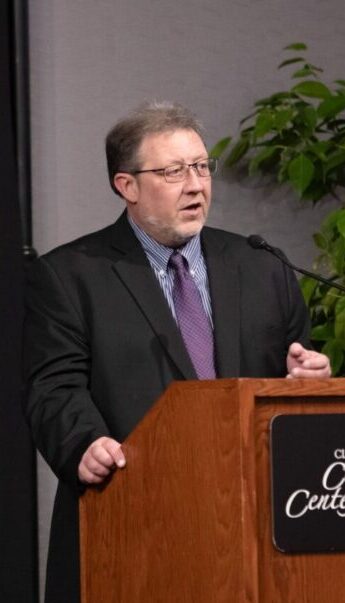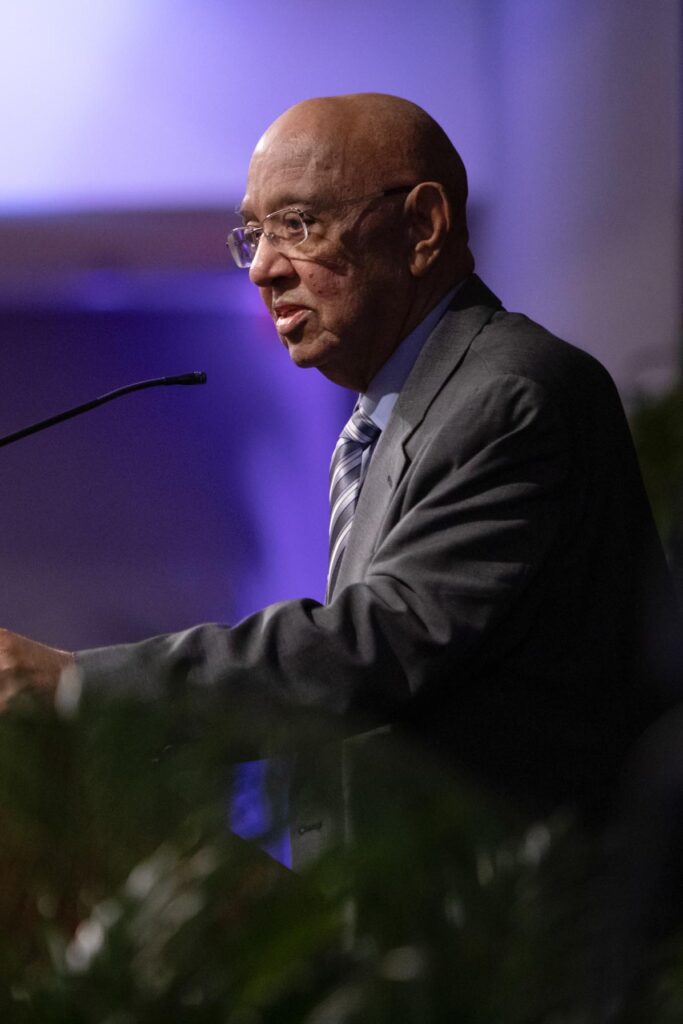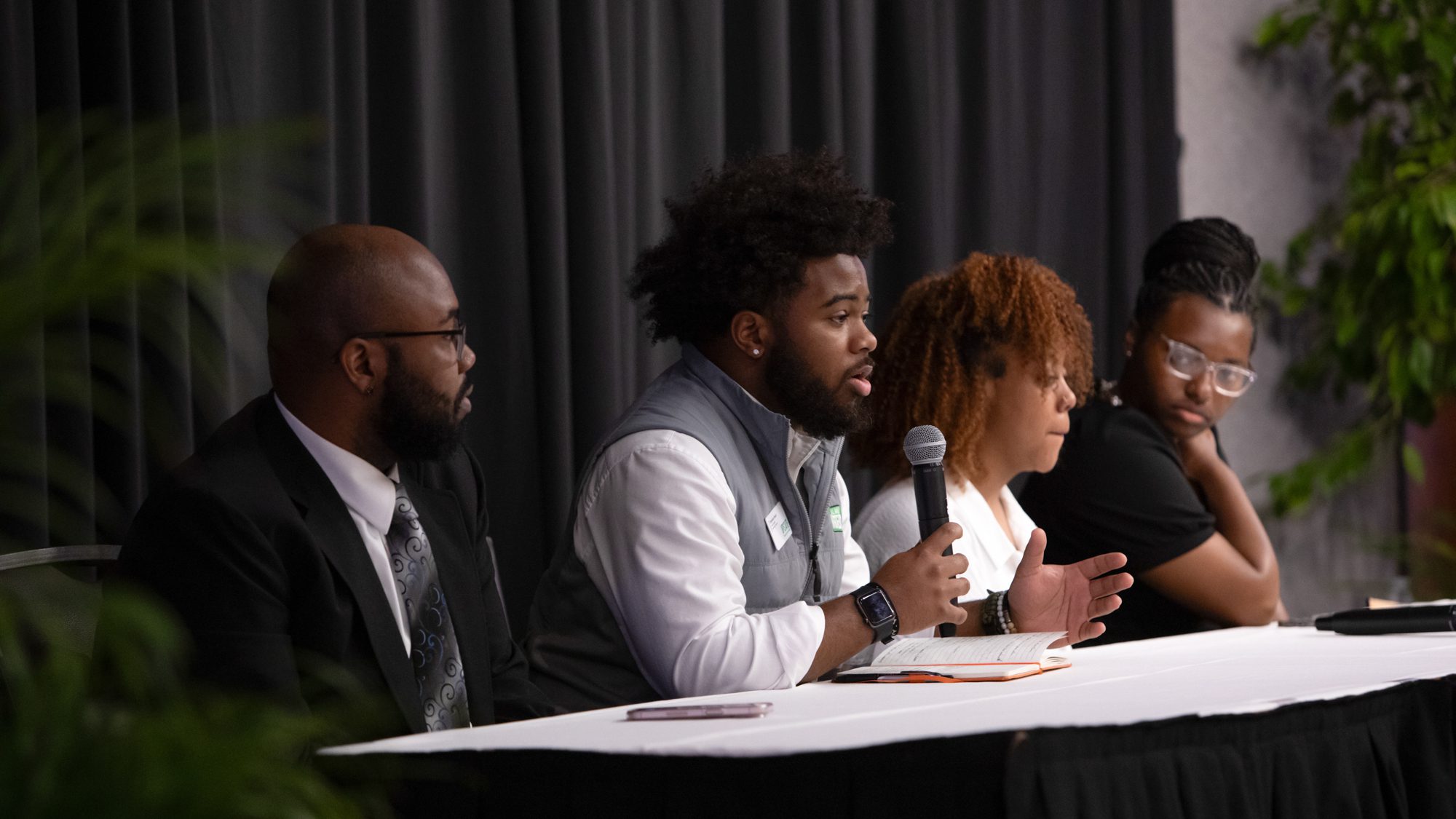Clemson University recently held the Joseph and Mattie De Laine Lecture Series, an annual lecture honoring South Carolina’s place in civil rights history, to highlight the vital roles that several South Carolinians played in shaping the state and country’s drive for equality.

This year, the lecture featured Brian Hicks, columnist for the Post and Courier and author of “In Darkest South Carolina.” The book focuses on J. Waties Waring, a Charleston-based federal judge and ally of NAACP attorney Thurgood Marshall as well as Joseph De Laine, namesake of the lecture series.
Hicks discussed Waring’s evolution as a judge and how, by “simply” following the law and the United States Constitution to the letter, he became a pivotal, early figure in the fight to end segregation in schools. Hicks detailed Warings’ personal life and the effect it had on his career as a judge, showing that despite the societal and cultural pressures of the time, Waring helped pave the way for cases and opinions that would go on to affect the Briggs v. Elliott court case, the first of five to be combined into the landmark Brown v. Board of Education Supreme Court decision.
“This is a judge who might have been better off personally if he had done nothing,” Hicks said, “but De Laine and Waring were essentially flip sides of the same coin. Their empathy lead them to do the difficult thing that also happened to be the just thing.”
About Joseph and Mattie De Laine
Joseph De Laine was born in Manning, South Carolina, and served as the principal of the Liberty Hill School and pastor of the Spring Hill Circuit of the A.M.E. Church in Summerton. He encouraged a group of citizens, including Levi Pearson and Harry Briggs, to file suit in 1948 after being denied transportation for Black children who walked nine miles to schools designated for them. Joseph and his wife, Mattie, worked with then-chief legal counsel to the NAACP, Thurgood Marshall, who would go on to become the first Black U.S. Supreme Court Justice.
Roy Jones serves as a Provost Distinguished Professor and executive director of Call Me MiSTER®, a program based at Clemson University that works to increase the pool of Black male educators in the teaching profession. Jones served as host of the event, which highlights the vital roles that several South Carolinians played in the early civil rights movement in the state.
Hicks’ presentation was followed by a student response panel. Students included Brikell Livingston and Jasmine McDaniel, recipients of the Joseph and Mattie De Laine and Reverdy Wells Scholarships, respectively. Shaekwon Heard, a Call Me MiSTER student from the University of South Carolina Upstate, and Alex Young, a Call Me MiSTER student from Clemson University, also served on the panel to discuss their perspectives on Hicks’ presentation as well as the event as a whole.

“This kind of history is invaluable to students, especially those born and raised in South Carolina,” Heard said. “This information isn’t taught or even accessible to most people, so to learn it and then hear from and see the direct descendants of the people who lived it is powerful, because history can be lost.”
Heard was referring to the many people in the audience who were direct descendants of De Laine, Wells, Briggs and others who were frequently brought up over the course of the evening. Joseph De Laine Jr., eldest son of Joseph and Mattie De Laine, was one of many to provide closing remarks on the night.
Jones has doggedly worked over the last several years to document and preserve history related to South Carolina’s place in civil rights history. Clemson Libraries is in the process of developing an online searchable database of the historical resources related to the South Carolina civil rights movement and is hosting all instructional materials.
Call Me MISTER is working to develop those materials and offer professional development summer sessions for educators interested in delivering instruction across a variety of focus areas. Jones and Call Me MiSTER are working closely with the Cecil Williams South Carolina Civil Rights Museum, which will share its physical location with Clemson for presentations, workshops and seminars and participate in any mutually beneficial grant opportunities with MISTER.







